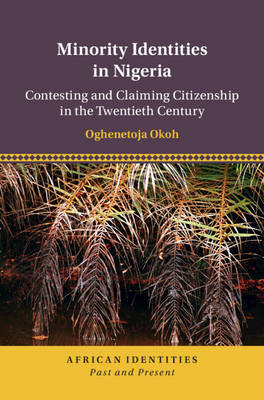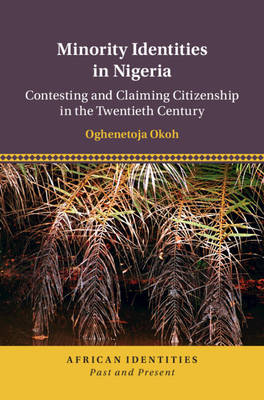
Bedankt voor het vertrouwen het afgelopen jaar! Om jou te bedanken bieden we GRATIS verzending (in België) aan op alles gedurende de hele maand januari.
- Afhalen na 1 uur in een winkel met voorraad
- In januari gratis thuislevering in België
- Ruim aanbod met 7 miljoen producten
Bedankt voor het vertrouwen het afgelopen jaar! Om jou te bedanken bieden we GRATIS verzending (in België) aan op alles gedurende de hele maand januari.
- Afhalen na 1 uur in een winkel met voorraad
- In januari gratis thuislevering in België
- Ruim aanbod met 7 miljoen producten
Zoeken
Minority Identities in Nigeria
Contesting and Claiming Citizenship in the Twentieth Century
Oghenetoja Okoh
€ 172,95
+ 345 punten
Omschrijving
Ethnic majorities and minorities are produced over time by the same processes that define national borders and create national institutions. Minority Identities in Nigeria traces how western Niger Delta communities became political minorities first, through colonial administrative policies in the 1930s; and second, by embracing their minority status to make claims for resources and representation from the British government in the 1940s and 50s. This minority consciousness has deepened in the post-independence era, especially under the pressures of the crude oil economy. Blending discussion of local and regional politics in the Niger Delta with the wider literature on developmental colonialism, decolonization, and nationalism, Oghenetoja Okoh offers a detailed historical analysis of these communities. This study moves beyond a singular focus on the experience of crude oil extraction, exploring a longer history of state manipulation and exploitation in which minorities are construed as governable citizens.
Specificaties
Betrokkenen
- Auteur(s):
- Uitgeverij:
Inhoud
- Aantal bladzijden:
- 250
- Taal:
- Engels
- Reeks:
Eigenschappen
- Productcode (EAN):
- 9781108488471
- Verschijningsdatum:
- 16/10/2025
- Uitvoering:
- Hardcover
- Formaat:
- Genaaid
- Afmetingen:
- 152 mm x 229 mm
- Gewicht:
- 512 g

Alleen bij Standaard Boekhandel
+ 345 punten op je klantenkaart van Standaard Boekhandel
Beoordelingen
We publiceren alleen reviews die voldoen aan de voorwaarden voor reviews. Bekijk onze voorwaarden voor reviews.









